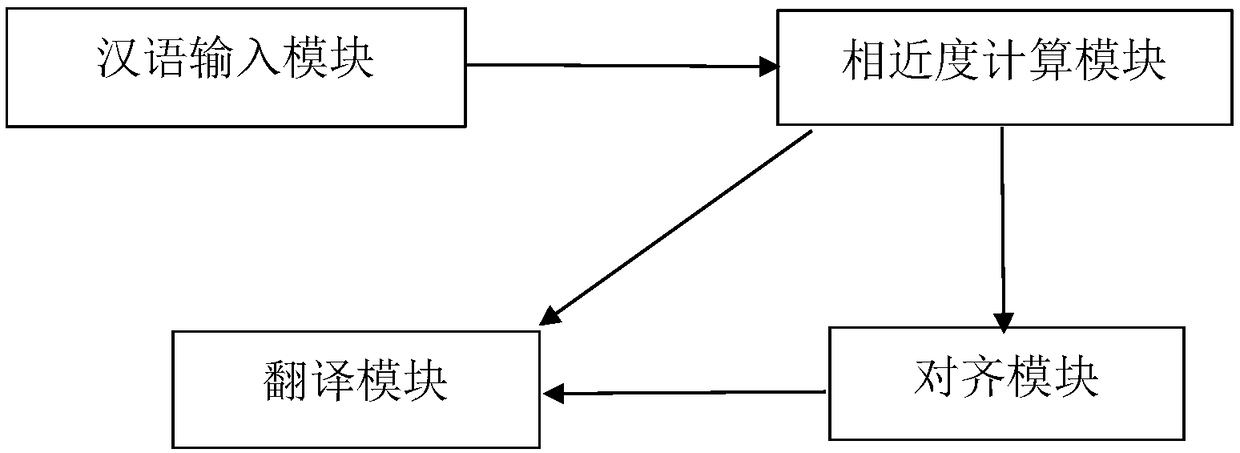Similarity-based intelligent offline translation machine
A similarity and translation machine technology, applied in the field of automatic translation, can solve problems such as poor accuracy, disregard of contextual information and human linguistic knowledge, and smart devices cannot keep online all the time, so as to achieve accurate translation results
- Summary
- Abstract
- Description
- Claims
- Application Information
AI Technical Summary
Problems solved by technology
Method used
Image
Examples
Embodiment Construction
[0021] Such as figure 1 As shown, an intelligent offline translation machine based on similarity, including:
[0022] The Chinese input module is used to receive the input Chinese sentences, perform word segmentation according to the Chinese-English dictionary, and obtain the correct word segmentation form;
[0023] The similarity calculation module is used to use some features of the Chinese sentence to be translated as a query condition to query similar sentences in the database, and select the closest sentence according to the similarity, that is, the similarity calculation;
[0024] The alignment module is used to align the Chinese sentences to be translated and the sentences in the database according to the alignment rules set, and align the words of the Chinese sentences and the words of the English sentences in the database;
[0025] The translation module is used for translating into English that meets the requirements according to the set English translation rules. ...
PUM
 Login to View More
Login to View More Abstract
Description
Claims
Application Information
 Login to View More
Login to View More - R&D Engineer
- R&D Manager
- IP Professional
- Industry Leading Data Capabilities
- Powerful AI technology
- Patent DNA Extraction
Browse by: Latest US Patents, China's latest patents, Technical Efficacy Thesaurus, Application Domain, Technology Topic, Popular Technical Reports.
© 2024 PatSnap. All rights reserved.Legal|Privacy policy|Modern Slavery Act Transparency Statement|Sitemap|About US| Contact US: help@patsnap.com








